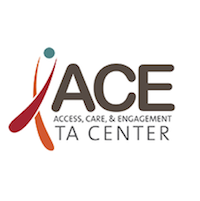
Starting April 1, more people will be eligible for Marketplace financial help, and current enrollees will be able to apply for increased Marketplace and COBRA subsidies. Also, the government will no longer be enforcing the 2019 version of the Public Charge rule. Here are the details.
The American Rescue Plan Act: What Does It Mean for People with HIV?
On March 11, 2021, President Biden signed the American Rescue Plan Act (ARPA) into law. This stimulus package includes significant funding to accelerate COVID-19 response activities, and expand access to affordable health insurance, including through the following:
- Expanded Affordable Care Act (ACA) subsidies
- Waived requirement to pay back 2020 APTC overpayments
- COBRA subsidies
- Federal unemployment benefits
- Stimulus payments to individuals
Expanded Affordable Care Act (ACA) Subsidies
For the 2021 and 2022 plan years, the amount of premium tax credits (PTCs) for individuals between 100% and 400% of the federal poverty level (FPL) will increase. Anyone who earns below 150% FPL will be eligible for a $0 premium plan. Starting April 1, 2021, individuals who make over 400% FPL may also be eligible for Marketplace subsidies (with PTC amounts phasing out gradually for higher income earners).
Individuals will be able to update their applications on HealthCare.gov beginning April 1, 2021 to receive these additional subsidies.
Finally, beginning this summer, individuals will automatically become eligible for PTCs and cost sharing reductions (CSRs) if they receive unemployment benefits during 2021. This means individuals in this group will receive the maximum amount of PTCs and CSRs.
What Should RWHAP Providers Do?
- Ensure that case managers and assisters are aware of ACA subsidy changes and are assisting clients with their Marketplace applications starting on April 1.
- Conduct individual outreach to clients who have lost job-based insurance to assess all coverage options (including expanded subsidies for COBRA and Marketplace coverage).
- Encourage clients over 400% FPL, who are newly eligible for Marketplace subsidies, to enroll during the current SEP
- Be aware that clients will not be required to pay back IRS APTC overpayments for the 2020 tax year (this applies to RWHAP grantees who were making these payments on behalf of clients).
Consumers do not have to pay back 2020 APTC overpayments
The ACA requires anyone receiving advance premium tax credits (ATPCs) to file their federal taxes and make sure they received the correct amount of APTCs during the year based on their income (this process is called “reconciliation”). However, the new law recognizes many people experienced significant changes to their income due to COVID-19. Therefore, the law will waive the requirement for consumers to pay back any APTC overpayments for the 2020 tax year.
COBRA Subsidies
Millions of people lost job-based health insurance coverage over the course of the pandemic. To ensure individuals who lose their jobs do not experience gaps in health insurance coverage, the ARPA provides federal funding to cover 100% of the cost of COBRA premiums for individuals who lost their jobs or had their hours reduced. This assistance is available beginning April 1, 2021 through September 30, 2021.
Federal Unemployment Benefits
The law extends the federal pandemic unemployment compensation (FPUC) payment of $300 per week through September 6, 2021. The law also extends the unemployment insurance programs first enacted in the CARES Act through September 6, 2021.
Stimulus Payments to Individuals
The law includes another round of stimulus checks, providing $1,400 for each individual making up to $75,000 per year.
What does it mean that the Trump Administration’s “Public Charge Rule” is permanently blocked?
The U.S. Citizenship and Immigration Services (USCIS) announced on March 9, 2021, that it would no longer be enforcing the expanded 2019 public charge definition.
As a reminder, the Trump administration’s 2019 Public Charge Rule had significantly expanded the types of public benefits that were negatively weighed in decisions to admit certain immigrants into the country or grant legal permanent residence status.
This means, the use of programs such as the Supplemental Nutrition Assistance Program (SNAP), federal housing assistance, or Medicaid will not be negatively factored into public charge assessments.
What Should RWHAP Providers Do?
RWHAP providers should ensure that immigrant communities are aware that the public charge rule is no longer in effect and that individuals are enrolling in programs and coverage for which they are eligible.
Note: The 1999 public charge policy remains in effect nationwide. Under this provision, only ‘cash assistance for income maintenance’ and ‘institutionalization for long-term care at government expense’ are considered for public charge assessments. Many immigrants are exempt from a public charge test, and those who are subject to a public charge test are usually not eligible for the benefits being weighed.